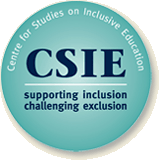
supporting inclusion, challenging exclusion
The UN Convention on the Rights of Persons with Disabilities
in a nutshell
The Convention (2006 in force in 2008) covers the rights of disabled people. Article 5 recognises the right to equality and non-discrimination; article 7 makes special provision for children; article 24 asserts the right to inclusive education.
Implementation of the Convention
Implementation of the Convention is monitored by the Committee on the Rights of Persons with Disabilities. Each state that has ratified the Convention will be expected to prepare periodic reports on its implementation and submit them to the Committee. The Committee will then consider the reports and examine government delegations from the states concerned at one of its two sessions per year, publishing concluding observations and making recommendations for further action.
View extracts from the Committee’s recommendations to states concerning the rights of persons with disabilities (2018-2021):
States which agree to be bound by the Convention recognise “the importance of accessibility to the physical, social, economic and cultural environment, to health and education and to information and communication, in enabling persons with disabilities to fully enjoy all human rights and fundamental freedoms” (Preamble, para. v).
The right to inclusive education is enshrined in article 24:
‘(1) States Parties recognize the right of persons with disabilities to education. With a view to realizing this right without discrimination and on the basis of equal opportunity, States Parties shall ensure an inclusive education system at all levels and lifelong learning directed to:
- the full development of human potential and sense of dignity and self-worth, and the strengthening of respect for human rights, fundamental freedoms and human diversity;
- the development by persons with disabilities of their personality, talents and creativity, as well as their mental and physical abilities, to their fullest potential;
- enabling persons with disabilities to participate effectively in a free society.
(2) In realizing this right, States Parties shall ensure that:
- persons with disabilities are not excluded from the general education system on the basis of disability, and that children with disabilities are not excluded from free and compulsory primary education, or from secondary education, on the basis of disability;
- persons with disabilities can access an inclusive, quality and free primary education and secondary education on an equal basis with others in the communities in which they live;
- reasonable accommodation of the individual’s requirements is provided;
- persons with disabilities receive the support required, within the general education system, to facilitate their effective education;
- effective individualized support measures are provided in environments that maximize academic and social development, consistent with the goal of full inclusion.
(3) States Parties shall enable persons with disabilities to learn life and social development skills to facilitate their full and equal participation in education and as members of the community. To this end, States Parties shall take appropriate measures, including:
- facilitating the learning of Braille, alternative script, augmentative and alternative modes, means and formats of communication and orientation and mobility skills, and facilitating peer support and mentoring;
- facilitating the learning of sign language and the promotion of the linguistic identity of the deaf community;
- ensuring that the education of persons, and in particular children, who are blind, deaf or deafblind, is delivered in the most appropriate languages and modes and means of communication for the individual, and in environments which maximize academic and social development.
(4) In order to help ensure the realization of this right, States Parties shall take appropriate measures to employ teachers, including teachers with disabilities, who are qualified in sign language and/or Braille, and to train professionals and staff who work at all levels of education. Such training shall incorporate disability awareness and the use of appropriate augmentative and alternative modes, means and formats of communication, educational techniques and materials to support persons with disabilities.
(5) States Parties shall ensure that persons with disabilities are able to access general tertiary education, vocational training, adult education and lifelong learning without discrimination and on an equal basis with others. To this end, States Parties shall ensure that reasonable accommodation is provided to persons with disabilities.’
For further information see the United Nations' enable website.
Page last updated: Tuesday 07 December 2021